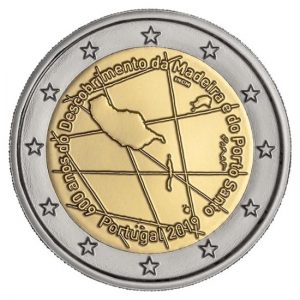Last updated on 24th February 2021
Those who are contemplating taking on Portuguese citizenship often wish to retain their nationality of origin. Fortunately, Portugal recognises and permits dual nationality. There can be a variety of reasons for taking on Portuguese citizenship:
- Lifelong access to state healthcare;
- For British nationals, certainty regarding their status in the EU after “Brexit”;
- The ability to move freely around Europe and enjoy the benefits of being an EU citizen;
- Being able to vote in national elections.
Naturalisation
Any foreign citizen aged 18 or over may apply for naturalisation once having formally resided for six or more years in the country. As EU nationals, this requires having held temporary residency in Portugal for a period of 5 years, then taking permanent residency through the local SEF office (Serviço de Estrangeiros e Fronteiras).
Central to the naturalisation process is a notarised and translated copy of the Birth Certificate issued in the country of origin.
A criminal record certificate, translated and apostilled, is also required from Portugal, from the country of origin and from any other country of residence. In Portugal, the certificate is issued at the local Tribunal. For UK nationals, application can be made online:
Then choose the ‘Police Certificates’ tab.
The Process
Citizenship application is handled by the IRN (Instituto dos Registos e do Notariado) through the local Conservatória. Depending on the nature of one’s situation, there are appropriate forms available in Portuguese only on the IRN website:
http://www.irn.mj.pt/sections/irn/a_registral/servicos-externos-docs/impressos/nacion alidade/impressos-nacionalidade
Language Test
Applicants must pass a Portuguese language proficiencytest, known as CIPLE – A2, except for those who have been married to a Portuguese national for more than 3 years.
Application for the test should be made online at least one month in advance. To help prepare, there is a book of model tests available from the following link:
http://www.lidel.pt/pt/catalogo/portugues-europeu-lingua-estrangeira/avaliac ao-certificacao/
CIPLE measures the basic ability to interact in a limited number of predictable daily communication situations. The exam consists of three parts:
- Reading comprehension and written interactions
- Oral comprehension
- Oral production and interactions
Citizenship by marriage
If married to a Portuguese national, citizenship may be obtained after 3 years of residency. In this case, the language test is usually waived.
If you are in a cohabiting relationship with a Portuguese citizen but not married (commonly referred to as “união de facto”), it is still possible to obtain Portuguese citizenship once the union has been officially recognised. While there is no formal process for registration for cohabiting couples, the status must still be proven. The couple should request a declaration from the local parish council, stating that they have lived together for at least two years. Two local witnesses are necessary. Translated copies of the birth certificate will also be necessary. In this case, no minimum required period of residency exists prior to applying for citizenship. However, authorities may require a Portuguese language proficiencytest as well as documented links which demonstrate integration into Portuguese society.
Application
All foreign language documents should be translated into Portuguese and certified. Once all of the paperwork has been assembled and checked, application should be hand delivered or sent by post via registered mail to:
Conservatória dos Registos Centrais
Rua Rodrigo da Fonseca, 200 1099-003 Lisboa
or visit the local “Conservatórias do Registo Civil”. The process usually takes around 3-6 months.
Dennis Swing Greene
info at madeira-weekly.com



